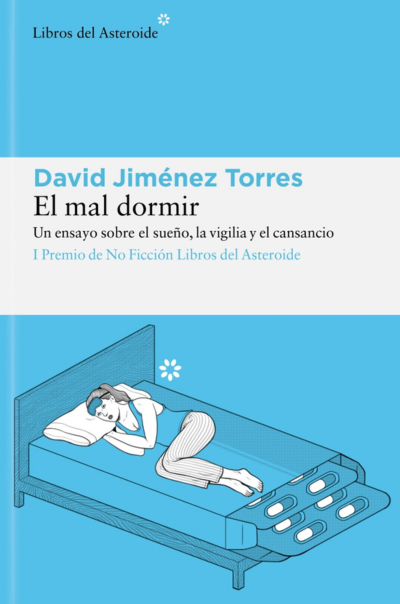Lifting a quarantine demands a tricky balance of health, economics—and politics.
That partisan motives may creep into the mix along with people’s lives and livelihoods sound atrocious and improbable in equal measure—let alone take precedent over them. Yet Spain’s government seems to be plotting against the country’s wealthiest region in precisely this way. Twice in a row, the coalition government of the centre-left PSOE and the far-left Podemos has singled out Madrid with a prolonged lockdown for no apparent reason but the leanings of its regional executive, led by the centre-right PP and the centrist Ciudadanos.
Much like elsewhere, Spain’s roadmap to normality is a piecemeal phaseout of lockdowns on a region-by-region basis. On April 28, PM Pedro Sánchez announced a four-phased timeline to gradually ease quarantines across the country’s 17 regions, with some of them broken up into smaller units to reflect varying case counts and treatment capacity. All these “healthcare units” have been subsequently placed on square one (“Phase 0”), a milder version of the 50-day quarantine endured nationwide until then.
The following stage (“Phase 1”) allows for gatherings of under 10 people, small stores to reopen at 50% capacity as well as hotels, churches, sport and event venues—all on the condition that people remain socially distanced. These restrictions would go on being gradually lifted across three further phases of no less than 2 weeks each until full normality is regained in the much-coveted “Phase 4”.
To get a foot on the reopening ladder, regions need to get various prongs of their anti-COVID plans approved by the national health ministry. These are supposedly limited to epidemiological and healthcare capacity criteria—namely, a downward enough COVID curve and a healthcare system sufficiently equipped to keep bending it further downwards.
Boxes to be ticked include numbers of new PCR-tested positive cases in the past week, the corresponding death rate over a larger timeframe, and the ratio per 10,000 people of emergency room and primary care beds. Regions ought to also have a set playbook for isolating new cases and those who are found to have come in their contact, even though contact-tracing technology remains remarkably rare nationwide.
Don’t let this festival of wonkiness overwhelm you, for the keyword is ‘supposedly’. Madrid is being stubbornly relegated to the back of the reopening line despite outperforming virtually every other Spanish region on all of the criteria above.
Granted, the capital city remains Spain’s COVID epicentre, with 67,000 cumulative positive tests and 15,000 COVID-related deaths to date—30% and 54% of national totals, respectively, for a region that houses 14% of Spain’s population. Yet no sensible reopening plan can rely on cumulative data, and Spain’s rightfully purports to prize recent progress in reducing new cases over accruing totals. That Madrid leads the nation on this count while being denied a swift reopening renders the hypothesis of political motives all too plausible. Numbers of hospitalized patients, those on primary care at home and positive PCR tests are all on the decline at rates between 80% and 90%. The region’s capacity to treat new cases—and its preparedness for a possible second wave—is also a record-breaker.
The projected needs for emergency room and primary care beds are down by 90% and 81%, respectively, after a six-fold increase in bed capacity. Madrid is among the top three regions with the highest recovery rate per 100.000 patients. Its ratio of new cases relative to the cumulative totals is lower than several other regions that have been given a pass to phase 1.
The prospect that politics, not healthcare, is denying Madrid a transition to phase 1 wouldn’t be so far-fetched if it didn’t dovetail with a number of disparaging comments by high-profile PSOE and Podemos officials against Madrid’s management of COVID, exemplary as though the figures show it to be. MP Rafael Simancas became the face of this nasty campaign of denigration this week after claiming that “Spain’s death toll is what it is because Madrid is in it”. Simancas is an MP for… you guessed it: Madrid. The week prior, his party’s twitter accounts also blasted the region he represents in Congress for its “inefficient and irresponsible management of COVID”.
Never mind that Madrid leads the nation while Spain lags the world. On those metrics where the national executive holds ultimate responsibility, PSOE and Podemos’ record was ranked at the bottom of a table of 96 other comparable countries three weeks ago in a study by Australia’s Institute of Certified Management Accountants (ICMA).
Though disparate reporting of cases and deaths renders cross-country comparisons near meaningless, Spain as a whole is thought to have one of the world’s highest COVID death rates. These comments are thus better understood not as a rebuke of Madrid’s record in tackling COVID—again, rather limpid—but of its distinctive two-tier healthcare system, produced by successive reforms that gave private providers a growing stake in running care facilities.
Against this form of privatization, the pro-single payer healthcare that the PSOE and Podemos have thrown down the gauntlet even though no evidence exists that worse health outcomes follow from a balance of private and public provision. In fact, they’re blasting Madrid’s mixed model at a time when the greater flexibility it affords is proving better than rigid single-payer systems in other regions at dealing with COVID.
That regions with differently designed healthcare systems get a one-size-fits-all path to reopening dictated from above is another Spanish flaw exposed by this crisis. In fully federal systems like Germany, regions get to both design their anti-COVID plans and their way out of lockdowns. In Spain, however, the separate ownership of these policies by governments with misaligned incentives at the regional and national level opens the door to political quibbles of this sort. Madrid’s regional premiere, Isabel Díaz-Ayuso, has even threatened to bring the national executive to court over its failure to provide a healthcare rationale for Madrid’s prolonged lockdown. She expects to hear back from national health authorities this week, but if they persevere in their arbitrariness, the rebuke by Spain’s Supreme Court that would likely follow would deal an unprecedented blow to Spain’s quasi-federal system as a whole. A ruling, however, may also take long enough so as to become politically moot.
Politics is given another open door to distort healthcare policies that ought to be technically based by the fact that no policymaker, regional or national, is equipped with precise estimates of the economic pain or the healthcare benefit from keeping a country in lockdown so as to trade off one against the other in an informed manner. In other words, politics rushes in to fill the void left by lacking science.
Madrid claims to be losing 18,000 jobs every week the economy is in lockdown, but the national government can always fabricate new healthcare imperatives to justify extending the quarantine. When the region appealed its remaining in phase 0 last week, the national health ministry moved the goalposts in just this way, by alleging that Madrid’s deep transport connectivity constituted a potential added vector of contagion while seeking to mollify the regional executive by carving out an intermediary phase for it with restrictions only marginally lifted (a so-called “phase 0.5”).
Faced with these hazily defined trade-offs and the seemingly partisan retribution inflicted on Madrid, many have even speculated that the Spanish government’s handling of the reopening is electorally motivated.
The PSOE and Podemos will hardly escape a day of reckoning at the polls for their disastrous handling of the virus, but by playing politics they seek to preempt some of that looming electoral backlash. In this light, the bile they’ve heaped on Madrid’s healthcare system seems part of a wider effort to cast themselves as worthy custodians of Spaniards’ health against the right’s privatizing zeal.
Both parties would also no doubt benefit from the sense of prolonged economic insecurity that will follow in the heels of massive layoffs and business closures. A country where protracted lockdowns deny entrepreneurs and small business owners the opportunity to autonomously make a living while the rest is doled out “minimum vital incomes” is a country where the left is poised to do rather well at the next election. The latter is a pet project of Pablo Iglesias, Podemos’ pony-tailed leader and Spain’s vice-president, and is set to go into effect towards May-end.
All of this may never grow out of mere speculation, but while Madrid is similarly stuck in an unfounded lockdown, don’t blame its residents for waking up to the prospect that it all may be a political plot.






